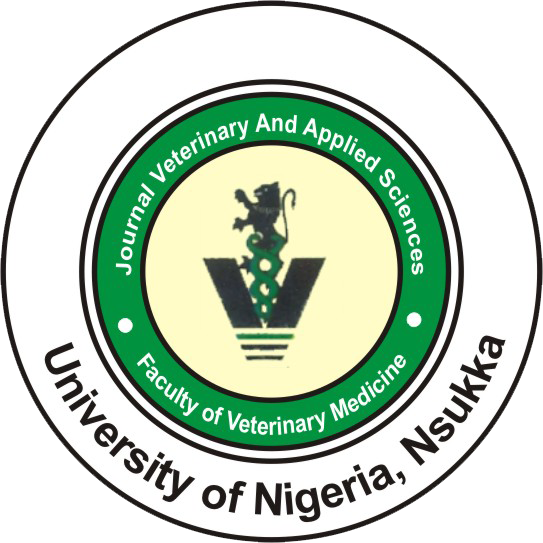University of Nigeria
ISSN: 2315 - 6856
e-ISSN: 2636 - 5553
Journal volumes
Powered by: RockSystems Global Services Ltd.
rocksystemsglobal@gmail.com (+2348035271306)
www.rocksystemsglobal.com
Volume 13, Issue 2: 2023 - Article 12
Ex vivo evaluation of the antispasmodic effects of fractions derived from Anacardium occidentale leaf extract
Daniel C. Ifenkwe*, Kelechi G. Madubuike, Samuel O. Onoja, Emmanuel Ewa, Jessica I. Ukwueze, Macnissi U. Chima, Oluchi N. Nwankudu, Stella C. Akomas
Department of Veterinary Physiology and Pharmacology, College of Veterinary Medicine, Michael Okpara University of Agriculture Umudike, Abia State, Nigeria.
Abstract
Diarrhoeal diseases and disorders affect both humans and animals, and there is a global search, particularly among herbs, for bioactive anti-diarrhoeal agents. This study evaluated the antispasmodic activity of fractions derived from partitioning of Anacardium occidentale leaf extract, on isolated rabbit smooth muscle contractility. Leaves of A. occidentale were collected, dried, pulverized, extracted by cold maceration using methanol, and the resulting crude extract was partitioned following the modified solvent-solvent protocol to yield three fractions: methanol, chloroform and petroleum ether fractions. Rabbit jejunum of about 2 – 3 cm long was dissected out, placed on a petri dish containing freshly prepared and oxygenated Tyrode solution at room temperature. The tissue was mounted and allowed to record its basal rhythmic contraction for two minutes before the effect of the fractions were evaluated at different concentrations. The effects of standard autonomic modification drugs, acetylcholine, histamine, and the muscarinic inhibitor atropine sulphate at different concentrations were tested in the presence/absence of varying concentrations of the test fractions. Results showed that the fractions derived from A. occidentale leaf extract provoked significant (p < 0.05) concentration dependent relaxing effect on contracting smooth muscles isolated from rabbit jejunum. The fractions partially inhibited acetylcholine-induced smooth muscle contractions, whereas, the histamine receptors were almost completely blocked, indicating more anti-histaminic, than anti-cholinergic effects. The chloroform fraction possessed active principle(s) with overt antispasmodic activities than other fractions. It was concluded that the fractions derived from extracts of A. occidentale leaves exhibited good anti-diarrhoeal potential, principally via the histaminic pathway, lending credence to the folkloric claim that A. occidentale leaves can be used to manage diarrhoea.
Keywords: Anacardium occidentale leaves; Crude extract fractions; Antispasmodic activity; Ex vivo evaluation; Rabbit jejenum.
How to cite this article:
Ifenkwe DC, Madubuike KG, Onoja SO, Ewa E, Ukwueze JI, Chima MU, Nwankudu ON and Akomas SC (2023). Ex vivo evaluation of the antispasmodic effects of fractions derived from Anacardium occidentale leaf extract. Journal of Veterinary and Applied Sciences, 13(2): 273 – 284.
* Correspondence: E-mail: ifenkwe.daniel@mouau.edu.ng Phone: +2347030863788
Download .pdf copy here >>






